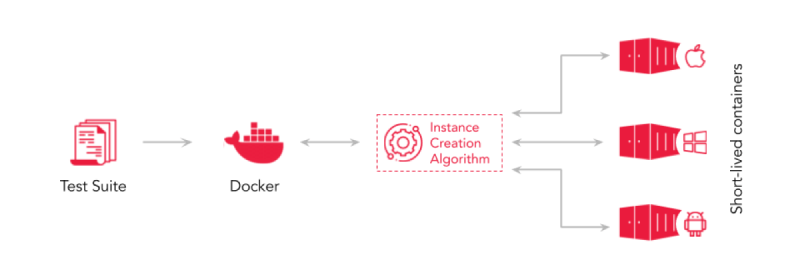Parallel Test Automation - Test Thousands of Cases in One Go
It is challenging to manage too many UI tests at the same time and meet release deadlines. Does it take too long to execute your Regression tests too? The simplest and most powerful way to overcome the challenge is to test all the tests in parallel. Parallel Test Automation is an innovative approach to help you run the tests parallelly and save your time so that you can focus on your core business activities.
Overview: Testing was done manually during the early stages of software development. As the industry advanced, there came some early-stage automation tools like AutoTester, UFT, and PreVue, to name a few. But as the tools were complicated and expensive, people started looking for better solutions. The new automation tools such as “Selenium, Katalon, Testim” emerged to go hand in hand with the rapidly changing software technologies.
As the software industry grew further, people started realizing they needed more Server space, faster processing, and affordable hardware and software solutions for maintaining the tests. As was the demand, there began supply of various OS, devices, and browsers. Industry patrons tried hard to make the products bug free, affordable, compatible across all devices, and above all, offer a great user experience.
Today’s software market is consumer-driven, and to stay relevant, your product has to be in a constant release-ready state. But there are certain limitations of the existing software solutions, like:
- Maintenance
- Resource consumption
- Setup and configuration
- Test execution time
- Scalability
To avoid such issues, it is always advised to adopt a robust testing strategy. But, is it possible to test your software across all the existing and emerging platforms in the stipulated time that you have?
Idea

Plenty is a software verification automation framework. The test suite has an OS and browser configuration. The information gets passed onto the Docker. The Docker raises the information to the Instance creation algorithm engine. The engine analyses OS and browser configuration which is required to run the test cases and it creates isolated short-lived containers. By short-lived means that each test case will execute on one instance of a container and after the execution is complete, the container gets destroyed. This particular container will execute only one test case at a time and this can be scaled to create multiple containers with various OS and Browsers versions as well.
How does it work?
Alexa analyses the voice command and forward the request to AWS where the Jenkins server is hosted. Jenkins triggers the job and forwards the request to Google Cloud where the Docker instance is located. The Docker instance then forwards the request to the algorithm and creates the required container with the devices or the platforms which are required for executing the test cases. After the execution is complete, an execution report also gets generated. The generated reports can be integrated on different reporting tools. There are multiple cloud instances to show that this Plenty can be implemented on multiple cloud instances and is not confined or limited to AWS or Google Cloud.
What’s Next?

Machine Learning and Artificial Intelligence
How wonderful it would be if Plenty can analyze the traffic that comes to your software application and decide on itself which browser version or which platform the test case should run on. This will improve the execution part a lot because your test cases will run on relevant instances and you don’t have to manually go and check which browser platform your test cases should run; ML is capable of doing all of them.
Performance Analysis
If we talk about running thousands of cases in parallel, it puts a lot of load on the application server. With Plenty, we don’t need a different setup for analyzing the performance of the system, it will perform both the functions, test the cases and perform analysis along with delivering relevant reports to the user.
Features
- Integrates with Alexa
- Plenty is scalable to handle more than a million sessions in parallel.
Conclusion: Plenty tests thousands of test cases in minutes, it empowers the users to save time and it increases the efficiency and reduces the chance of error.
Watch the demo video here








